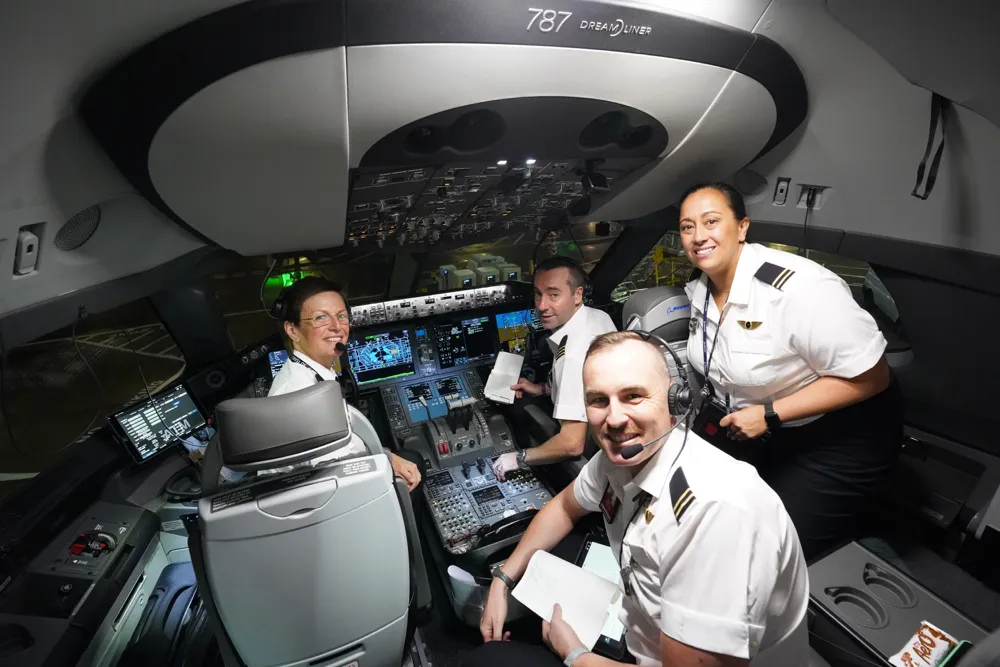
Qantas To Grow Workforce By 8,500
Mar 02, 2023

Qantas has announced plans to significantly expand its workforce by adding approximately 8,500 new employees over the coming years. This initiative aims to support the airline's recovery and growth following the challenges posed by the pandemic. The recruitment drive will focus on various roles across the organization, including cabin crew, ground staff, and pilots, to enhance operational capacity and improve customer service. By investing in its workforce, Qantas seeks to ensure a robust and agile operation that can meet rising demand as travel restrictions ease and the aviation industry continues to rebound.
Qantas' Ambitious Workforce Expansion
In a significant move to bolster its operations, Qantas has announced plans to expand its workforce by 8,500 employees. This strategic decision comes in response to the growing demand for air travel as the industry continues to recover from the impacts of the global pandemic. With this expansion, Qantas aims to enhance its service offerings and improve operational efficiency, positioning itself as a leader in the aviation sector.
Understanding the Workforce Growth Strategy
The decision to grow the workforce by 8,500 is part of Qantas' broader strategy to ensure sustainable growth in a competitive market. This increase will cover various sectors within the company, including pilots, cabin crew, ground staff, and operational support. The chart below illustrates the projected growth across different departments:
| Department | Current Employees | Projected Increase | Total Employees After Expansion |
|---|---|---|---|
| Pilots | 3,000 | 1,500 | 4,500 |
| Cabin Crew | 7,000 | 3,000 | 10,000 |
| Ground Staff | 10,000 | 2,500 | 12,500 |
| Operational Support | 5,000 | 1,500 | 6,500 |
Impact on the Aviation Industry
This workforce expansion is expected to have a ripple effect throughout the aviation industry. As Qantas increases its staff, it will also contribute to job creation in related sectors, such as hospitality, tourism, and transportation. The demand for skilled labor will rise, allowing for further employment opportunities in various fields. This growth strategy not only benefits Qantas but also the broader economy.
Addressing Challenges in Recruitment
While the expansion is promising, Qantas faces challenges in recruiting qualified candidates. The aviation sector has been experiencing a talent shortage, exacerbated by the pandemic. To attract top talent, Qantas is investing in robust recruitment campaigns and offering competitive salaries and benefits. The company is also focusing on diversity and inclusion, ensuring that its workforce reflects the communities it serves.
Promoting Employee Well-being
As part of the workforce growth strategy, Qantas emphasizes employee well-being and job satisfaction. The airline plans to introduce various initiatives aimed at enhancing work-life balance, mental health support, and career development opportunities. By prioritizing employee welfare, Qantas aims to foster a positive workplace culture that attracts and retains talent.
The Future of Qantas
With the decision to grow its workforce by 8,500 employees, Qantas is setting a strong foundation for its future. This move aligns with the company's vision to be the world's leading airline, known for its exceptional customer service and operational efficiency. As travel demand continues to rise, Qantas is well-positioned to capitalize on new opportunities and navigate the challenges ahead.
Conclusion
In conclusion, Qantas' ambitious plan to expand its workforce by 8,500 employees reflects its commitment to growth and excellence in the aviation industry. By focusing on recruitment, employee well-being, and operational efficiency, the airline is poised to enhance its service offerings and maintain its competitive edge. This strategic initiative not only benefits Qantas but also contributes to the recovery and growth of the broader economy.
As the aviation sector rebounds, Qantas' proactive approach serves as a model for other airlines looking to navigate the post-pandemic landscape. The focus on skilled labor, employee satisfaction, and community engagement will undoubtedly play a crucial role in shaping the future of air travel in Australia and beyond.
Related Articles

Explore Thailand: The Best Islands to Visit for Paradise, Adventure, and Relaxation

The Ultimate Guide to the Best Islands in Thailand for Your Next Getaway

Do babies need passports? How to get a passport for a newborn

How to get a U.S. passport fast: here’s how to expedite the process

What is Mobile Passport Control: 5 reasons why you should use it

SENTRI vs. Global Entry: A detailed guide

Do you need a passport to go to the Bahamas? Let’s find out

Do you need a passport to go to Mexico? A detailed guide

Do you need a passport to go to Canada? We got the answer

Do You Need a Passport for a Cruise: An Essential Travel Guide

Booster Seat Requirements: All the Rules to Follow in Your Rental Car

What Are the World’s Most Powerful Passports, and How Does Yours Rank?

How to Take a Passport Photo at Home: A Helpful Guide

You've got to have heart! Southwest's new livery

Your opinion: Should water be free on low cost carriers?

Young women bolder than guys as solo travellers
